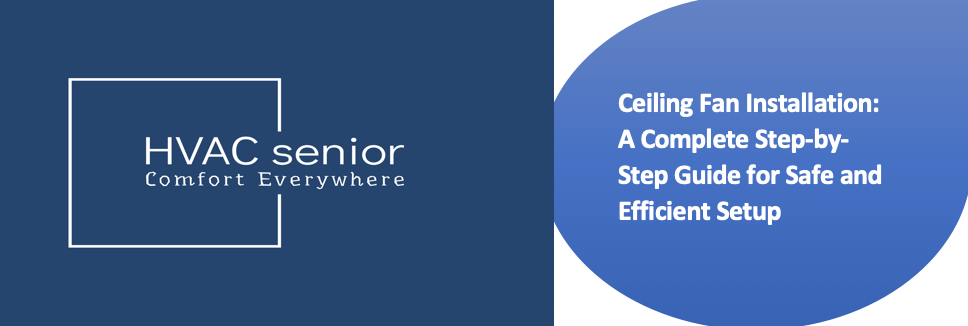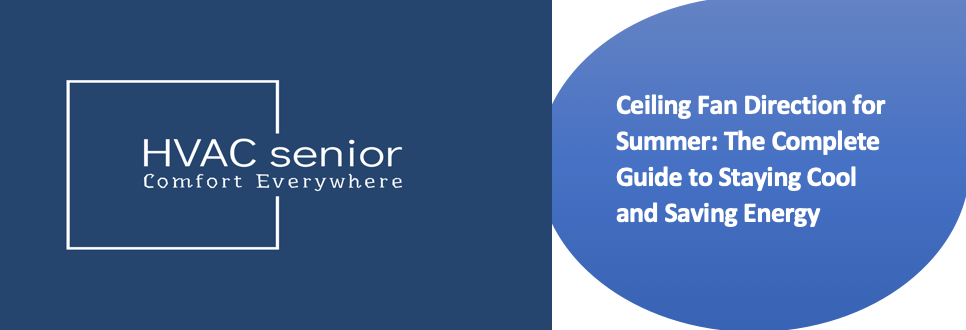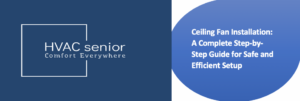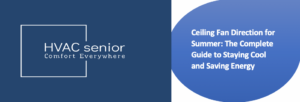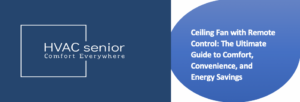Mobile Home Water Heater: All You Want to Know Before You Buy or Replace One
As a mobile home dweller, having a good functioning water heater is important to daily comfort — from scalding showers to hot dishes and laundry. Yet mobile homes have unique plumbing, venting, and sizing requirements, so not every water heater will fit or function correctly.
Choosing the wrong model will most likely lead to inefficiency, safety risks, or problems during installation.
Following is a detailed explanation of how mobile home water heaters differ from regular water heaters, the types, installation requirements, must-have features, and some maintenance tips so you can get the best out of it and enjoy maximum energy efficiency.
What Is a Mobile Home Water Heater?
A modular or manufactured home water heater is designed to be installed in modular or manufactured homes. It is used but must be HUD approved for performance and safety, like a typical home water heater.
Manufactured heaters are built to:
- Be placed in reduced compartmental or space size.
- Be attached to different venting systems.
- Function safely with reduced clearances and airflows.
- Work well with gas or electric hookups suitable for mobile home plumbing.
If your mobile home came with a factory-mounted water heater, you should only replace it with one approved for mobile home installation.
Also read: Portable Gas Heater
Why Mobile Home Water Heaters Differ from the Normal Units
Many homeowners wonder why they can’t just install a normal water heater in a mobile home. Here’s why mobile home units differ:
1. HUD Compliance
All mobile home water heaters must conform to HUD safety standards. These cover venting, clearance, and installation requirements for carbon monoxide and fire avoidance in smaller, confined spaces.
2. Flue and Venting Design
Direct-vent or sealed combustion equipment, instead of pulling air from inside the house, is employed in mobile home construction. This is essential for safe gas burning and safety in confined living spaces.
3. Compact Size
They are available to be installed in compact utility closets or under-the-counter. They are usually 30, 40, or 50 gallons in size, depending on household requirements and room.
4. Dual Access
Front and back access panels are found on a lot of mobile home water heaters to provide simple maintenance even in cramped quarters.
5. Conversion Options
Some models can be converted from propane to natural gas or natural gas to propane, making them ideal for different mobile home park installations.
Also read: Natural Gas Heater
Types of Mobile Home Water Heaters
1. Electric Mobile Home Water Heaters
Electric heaters are the most widely used for mobile homes since they are simple to install and have low maintenance.
Pros
- No gas line or venting installation is necessary.
- Compact size and simple installation.
- Less noise.
- Fewer safety risks.
Cons
- Long recovery time (more time to heat water).
- Higher energy costs in some areas.
Best For: Homes with stable electrical systems and limited availability of natural gas.
2. Gas Mobile Home Water Heaters
Gas units (natural gas or propane) are ideal for residences that have costly or unreliable electricity. They use a flue and burner setup to heat the water quickly.
Pros
- Quick water heating and recovery.
- Ideal for big families.
- Lower operating cost in areas where gas is affordable.
Cons
- Requires proper venting and clearance.
- Higher upfront installation cost.
- Needs maintenance to prevent gas lines from leaking or soot buildup.
Best For: Larger mobile homes or families that need hot water on a regular basis.
3. Tankless (On-Demand) Water Heaters for Mobile Homes
Tankless types heat water as needed, deliver unlimited hot water, and save space.
But all tankless heaters are not sanctioned for use in mobile homes — make sure the manufacturer’s label states HUD compliance.
Advantages
- Non-stop hot water.
- Energy-efficient — no standby loss of heat.
- Space-saving and wall-mounted design.
Disadvantages
- Initial cost is higher.
- Needs robust electrical or gas supply.
- May need professional retrofitting for compatibility.
Best For: New or renovated mobile homes seeking efficiency and space conservation.
Also read: Gas Wall Heater
How to Choose the Right-Size Water Heater for Your Mobile Home
Choosing the right tank size is crucial for efficiency and comfort. Here’s a handy reference by household size:
Household Size\recommended Tank Size
| Household Size | Recommended Tank Size |
| 1–2 People | 20–30 Gallons |
| 3–4 People | 40 Gallons |
| 5+ People | 50 Gallons or Tankless System |
Remember: the larger the tank, the greater the space and energy use, so choose accordingly depending on how your family utilizes it daily.
Critical Installation Points
1. Installation location
Mobile home water heaters often find their way into small utility closets or underneath the floor. Always ensure:
- Adequate airflow and ventilation.
- No flammable materials nearby.
- Ready servicing or drainage access.
2. Anchoring
Because mobile homes do travel slightly, heaters must be well strapped or bracketed to prevent tipping or movement.
3. Venting
Approved direct-vent kits should be used that send gases outdoors safely. Never vent into an attic space or crawl space.
4. Drainage and Overflow
Always include a discharge line and drain pan for leaks or pressure relief valve discharge.
5. Electrical and Gas Connections
Have a qualified licensed professional make all electrical or gas connections. Poorly made wiring or a gas leak may be dangerous.
Mobile Home Water Heater Energy Efficiency Tips
Because mobile homes are less well-insulated and have smaller water heaters, energy efficiency is crucial. Remember these tips:
- Insulate hot water pipes to avoid heat loss.
- Apply a water heater blanket on older models (where allowable).
- Adjust thermostat lower to 120°F (49°C).
- Shut off or unplug electrical appliances when going to bed for long periods.
- Fix leaks to avoid wasted hot water.
To get the most efficient water heaters, use ENERGY STAR-qualified models, which use 10–20% less energy.
Maintenance Tips
Maintenance of your water heater will make it last longer and work better.
Monthly Checks
- Look for leaks or corrosion on fittings.
- Hear rumbling or popping noises, which may indicate sediment buildup.
Every 6 Months
- Drain and flush the tank to remove mineral deposits.
- Inspect the pressure relief valve (TPR) for functionality.
Every year
- Check electric connections or gas connections.
- Clean air intake and exhaust vents.
- Change anode rods (on tanks) every 3–5 years to prevent corrosion.
Signs Your Mobile Home Water Heater Must Be Replaced
If your water heater is showing any of these signs, it may be due for replacement:
- Water heats slowly.
- Rusty or stained water.
- Strange noises (popping, rumbling).
- Leaks near the tank base.
- The unit is over 10–12 years old.
Replacing early can prevent damage to your floor, walls, or plumbing system.
Top Features to Look For
When shopping for a new mobile home water heater, consider these key features:
- HUD-approved label (required by law).
- Compact size with front access panel.
- Adjustable thermostat for precise control.
- High recovery rate for faster heating.
- Safety shutoff valve and pressure relief system.
- Sturdy glass-lined tank for corrosion-proofing.
- Minimum 6-year warranty coverage.
Average Cost of Mobile Home Water Heaters
| Type | Average Unit Cost | Installation Cost | Total Estimated Cost |
| Electric | $350–$600 | $300–$500 | $650–$1,100 |
| Gas | $500–$900 | $400–$700 | $900–$1,600 |
| Tankless | $800–$1,500 | $600–$1,000 | $1,400–$2,500 |
Though more expensive at purchase, tankless units operate longer and reduce utility costs in the long run.
Safety Precautions
- Always switch off power or gas supply prior to servicing.
- Never obstruct vent openings or install close to flammable materials.
- Avoid do-it-yourself gas connections — employ a licensed technician.
- Inspect the pressure relief valve every day for safe operation.
- Install a carbon monoxide detector near gas units.
Frequently Asked Questions
1. Can I install a standard residential water heater in my mobile home?
No. Mobile homes require HUD-approved water heaters that are specifically designed for manufactured housing. Standard models may not vent correctly and would be unsafe.
2. What’s the right size water heater for a small mobile home?
For single or double occupancy, a 30-gallon gas or electric type is usually sufficient.
3. How long does a mobile home water heater last?
Generally 8–12 years, depending on maintenance and water quality.
4. Can you replace a gas heater with an electric one?
Yes, but requires rewiring and removing gas lines. Always let a professional make the conversion.
5. What is most energy-efficient?
Tankless electric or gas water heaters are the most efficient because they heat water only when they are used.
Conclusion
A mobile home water heater is a crucial part of your home’s comfort and usability. Because mobile homes have specific space and safety requirements, always buy a HUD-approved unit specifically designed for manufactured housing.
No matter if electric, gas, or tankless is your preference, just make sure your water heater is properly installed, properly maintained, and properly sized for your home.
Proper unit and maintenance, and your manufactured home will have hot water reliably, save you money on bills, and enjoy trouble-free years of operation.



